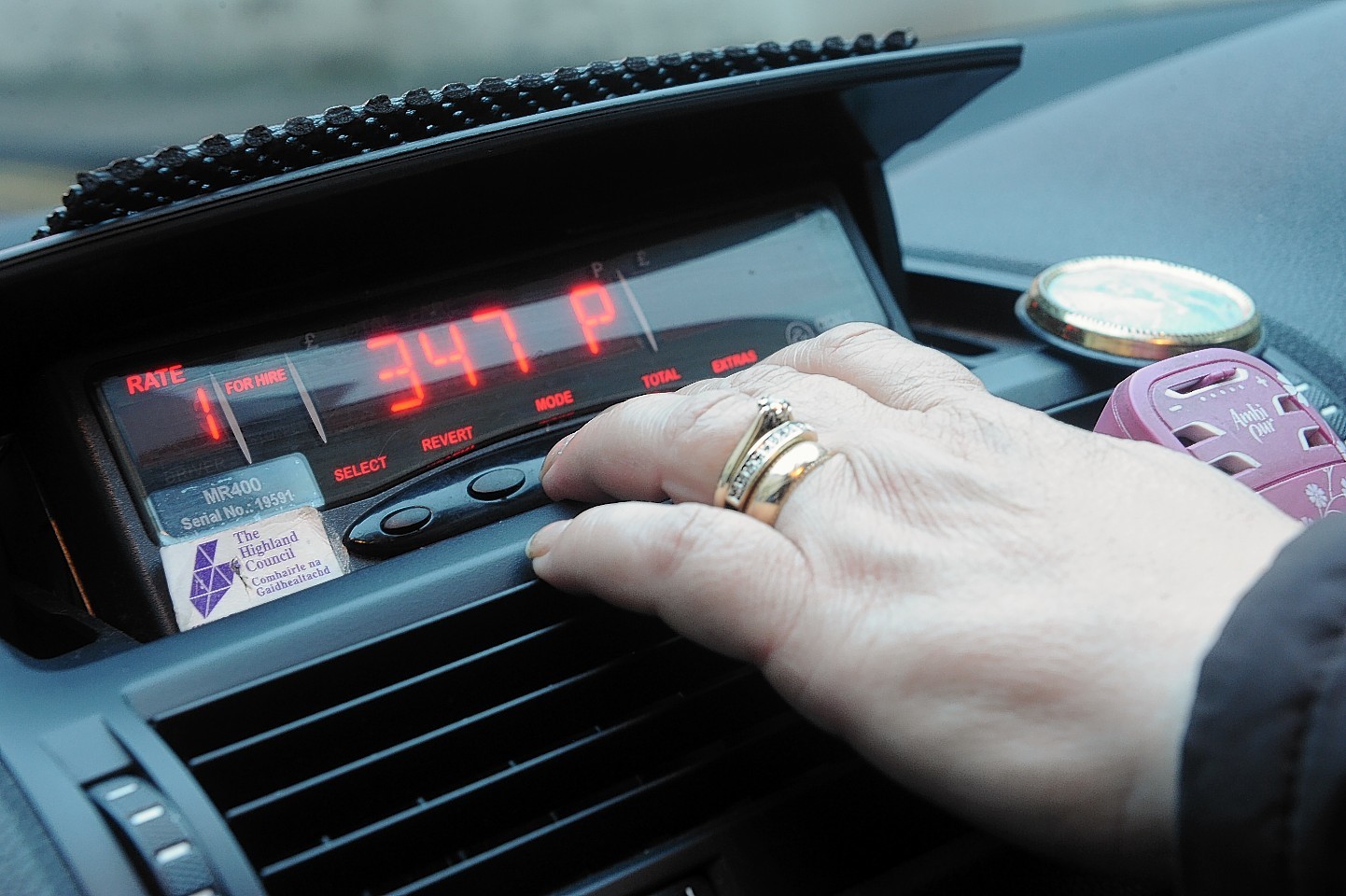Taxi fares in the north are poised to come under the microscope – with some drivers in Inverness calling for a substantial rise in prices.
However, companies from elsewhere in the Highlands want the fares to be left alone to encourage taxi use.
The issue will go before Highland Council’s licensing committee tomorrow for consideration.
The local authority has a statutory duty to review tariffs every 18 months.
However, their decisions have proved controversial in the past – with the most recent review leading to protracted stand-off after the Inverness Taxi Alliance complained to the transport commissioner.
The licensing committee eventually offered a 50p rise for the basic tariff, higher than had been recommended by officials.
But drivers in the Highland capital are now wanting further increases when the tariffs are reviewed this week.
Inverness-based Sneckie Taxis are calling for starting tariffs to be brought into line with the Scottish average and say they could argue for it to be increased even further to the UK average.
Raymind Munro from the company said: “At the very least we seek the taxi fares to be increased by the amount required to bring the Highland taxi tariff into line with the national average fare for a running mile in Scotland.
“We could argue for it to be increased even higher to the UK national average, due to the well known fact that fuel prices have been for many years the highest in the UK up here in the Highlands.”
The Scottish average for the basic tariff is £2.74 at flag fall and then £1.80 for each mile after that.
The UK average is £2.76 and £1.87 per mile.
The Inverness Taxi Alliance suggests making no change to flag fall on the basic tariff but with an increased running mile rate.
However, drivers in Caithness and Lochaber have urged councillors not to increase fees.
They are concerned that high costs could have an impact on business.
The licensing committee will this week agree a draft tariff, which will then go out to public consultation.
The committee will then agree a final tariff in February.
In his report going before councillors, licensing officer Michael Elsey said: “The council when fixing the tariff is exercising a balancing function between the legitimate expectations of taxi operators to earn sufficient income to make a living and the public expectation to be able to hire a taxi of reasonable quality at a reasonable cost.”
